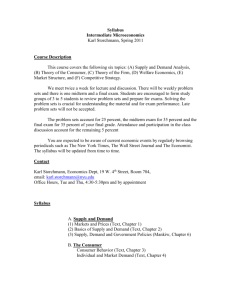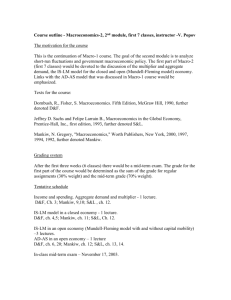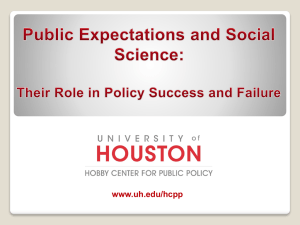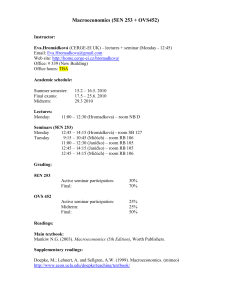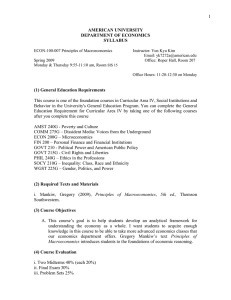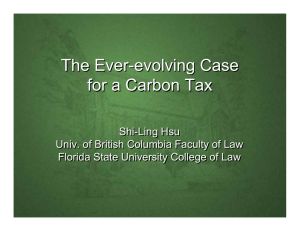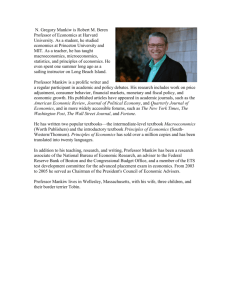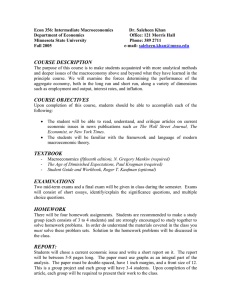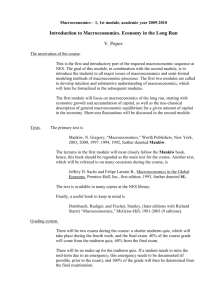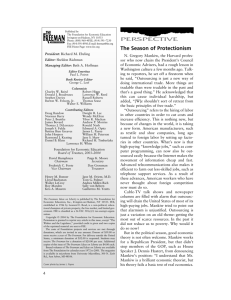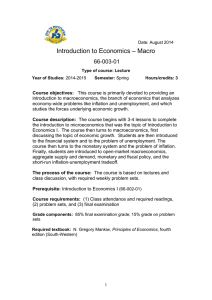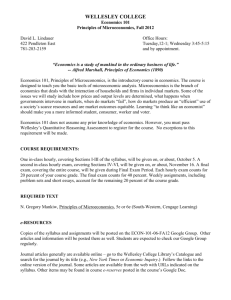Problem Set 3
advertisement
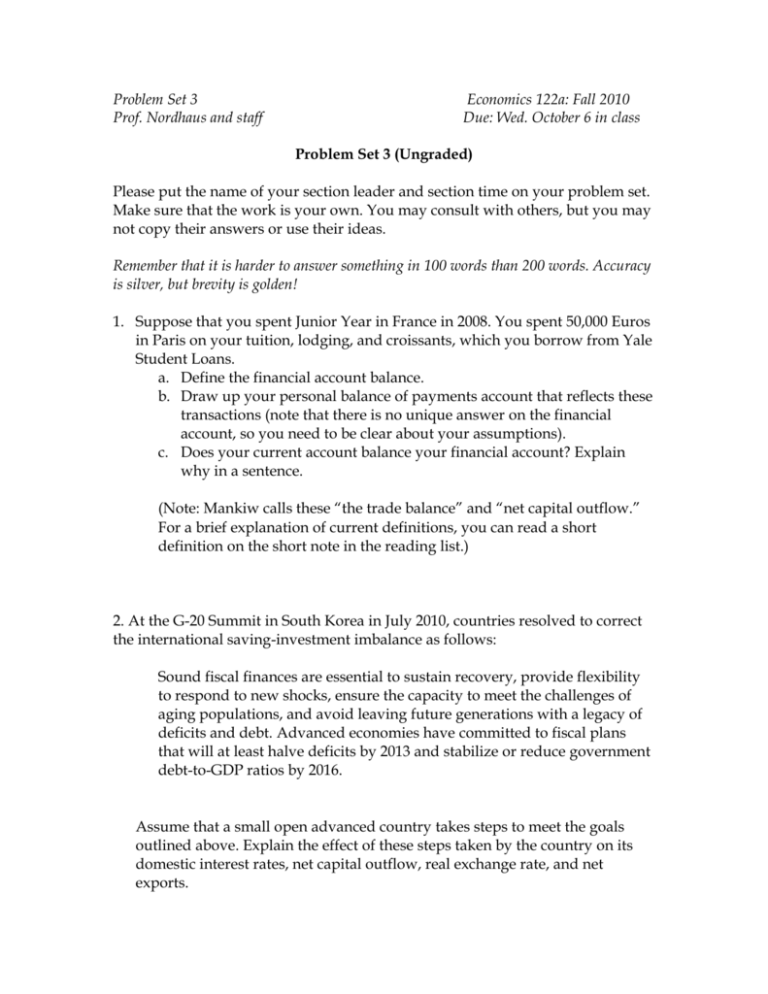
Problem Set 3 Prof. Nordhaus and staff Economics 122a: Fall 2010 Due: Wed. October 6 in class Problem Set 3 (Ungraded) Please put the name of your section leader and section time on your problem set. Make sure that the work is your own. You may consult with others, but you may not copy their answers or use their ideas. Remember that it is harder to answer something in 100 words than 200 words. Accuracy is silver, but brevity is golden! 1. Suppose that you spent Junior Year in France in 2008. You spent 50,000 Euros in Paris on your tuition, lodging, and croissants, which you borrow from Yale Student Loans. a. Define the financial account balance. b. Draw up your personal balance of payments account that reflects these transactions (note that there is no unique answer on the financial account, so you need to be clear about your assumptions). c. Does your current account balance your financial account? Explain why in a sentence. (Note: Mankiw calls these “the trade balance” and “net capital outflow.” For a brief explanation of current definitions, you can read a short definition on the short note in the reading list.) 2. At the G-20 Summit in South Korea in July 2010, countries resolved to correct the international saving-investment imbalance as follows: Sound fiscal finances are essential to sustain recovery, provide flexibility to respond to new shocks, ensure the capacity to meet the challenges of aging populations, and avoid leaving future generations with a legacy of deficits and debt. Advanced economies have committed to fiscal plans that will at least halve deficits by 2013 and stabilize or reduce government debt-to-GDP ratios by 2016. Assume that a small open advanced country takes steps to meet the goals outlined above. Explain the effect of these steps taken by the country on its domestic interest rates, net capital outflow, real exchange rate, and net exports. 3. Mankiw, Chapter 5, problem 2, p. 151, parts (a) and (b). In addition, do the following: (c) Suppose that G is again 1,000, and the country has a disputed election, followed by riots and strikes. International investors will now only invest if they receive a risk premium of 5 points above the world interest rate. What is the domestic real interest rate for the country? What is the effect of the election/riots/strikes on investment, national savings, trade balance, and the equilibrium exchange rate? 4. Do Mankiw, Chapter 5, Appendix, problem 1, p. 162. (This problem requires you to study the large open economy in the appendix, which we did not cover in class, but will be at least briefly covered in sections.)
